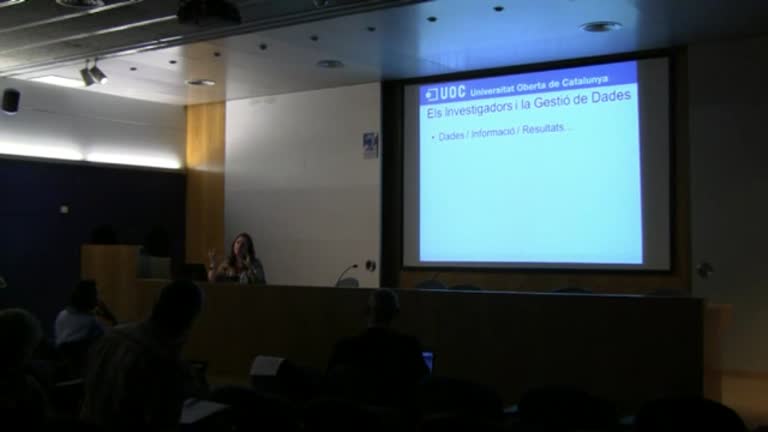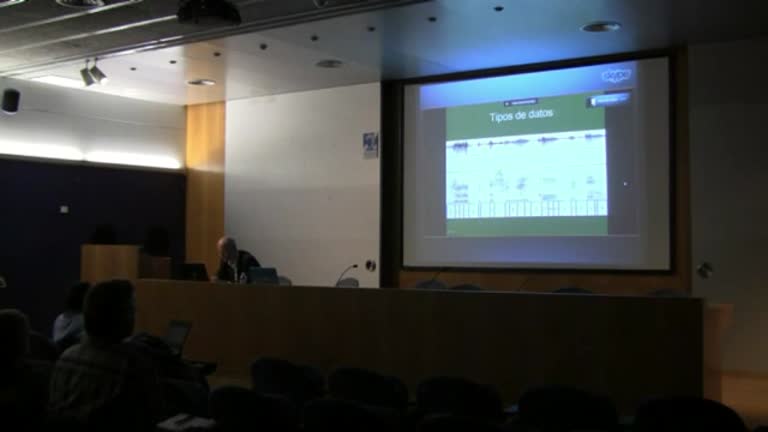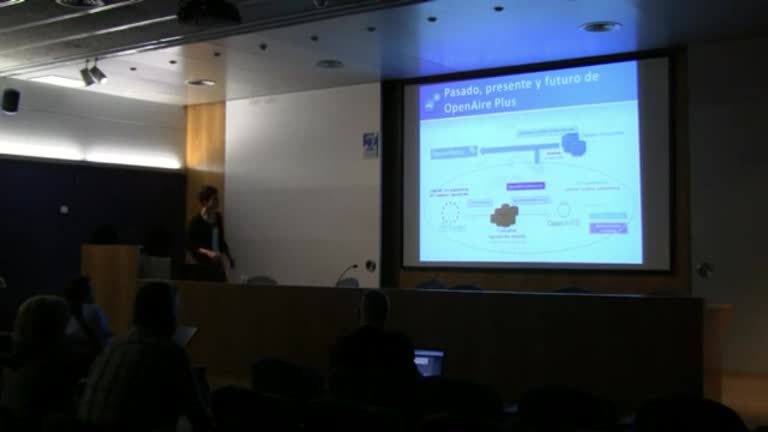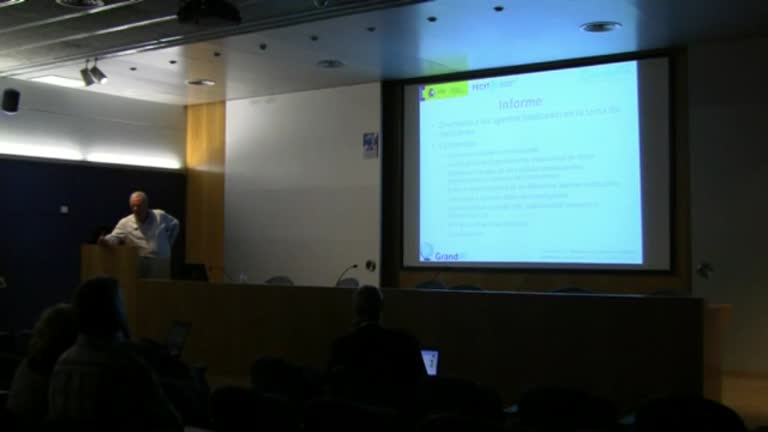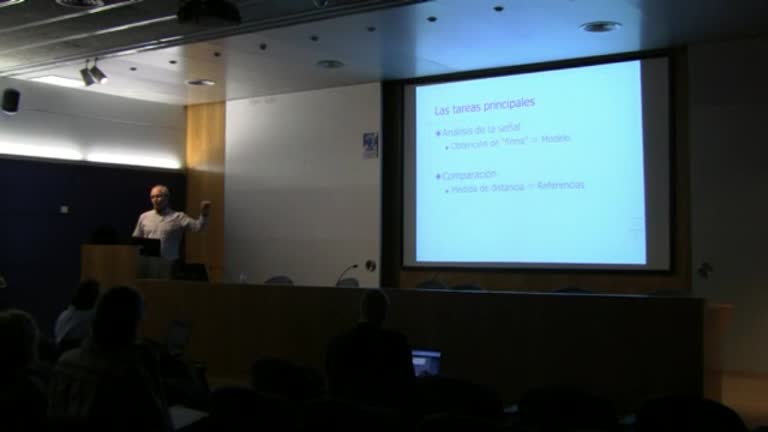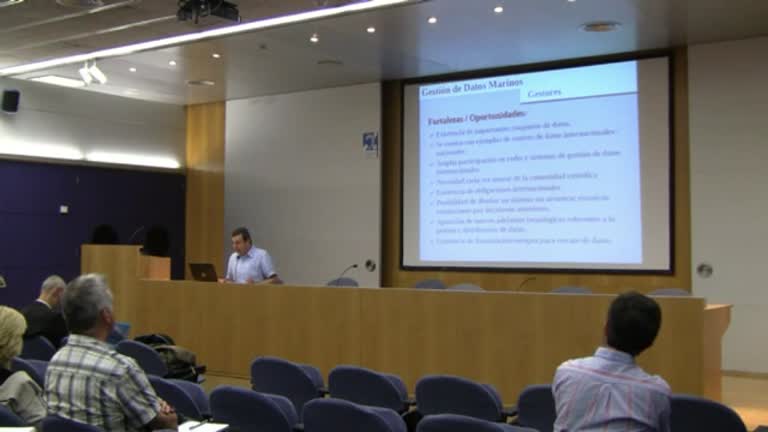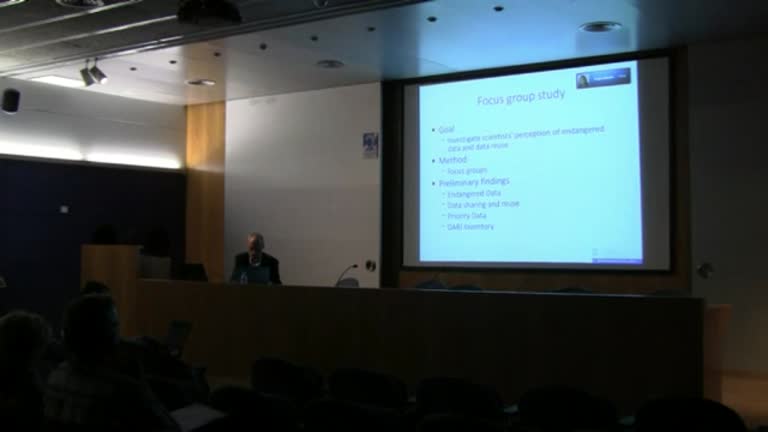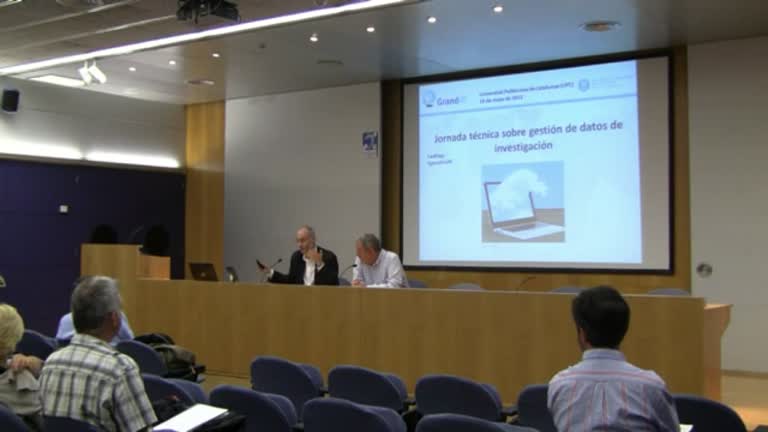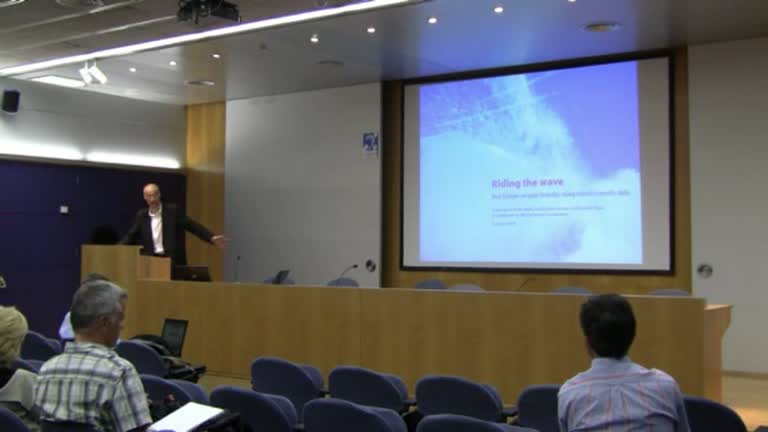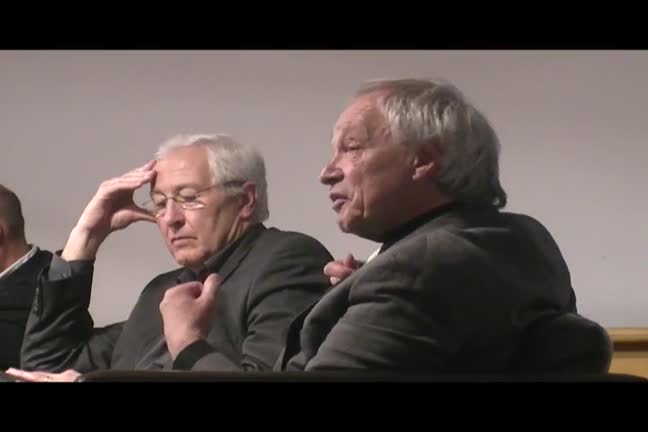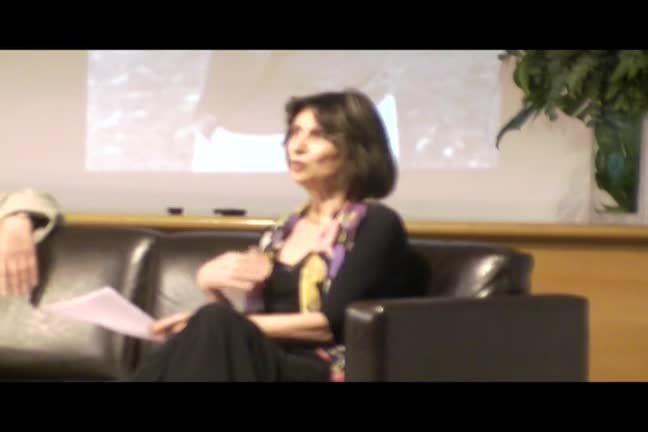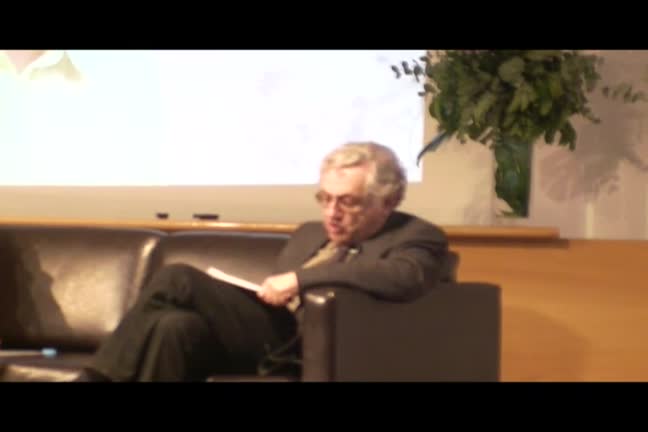Objectes multimèdia amb l’etiqueta: Actes, jornades i conferències
Resultats de la cerca
Retos y dificultades en la implementación de estrategias institucionales para la gestión de datos
Accés obert
10 de maig 2012
Una perspectiva de la gestión de datos de investigación desde las Humanidades
Accés obert
10 de maig 2012
OpenAIREplus: una iniciativa europea como motor de la actividad nacional en la gestión de datos
Accés obert
10 de maig 2012
La gestión de datos desde la perspectiva de un centro de datos de investigación
Accés obert
10 de maig 2012
Avances recientes a nivel internacional en la gestión de datos de investigación
Accés obert
10 de maig 2012
Homenatge Manuel de Solà-Morales. Quarta Mesa: "Professió"
Accés obert
10 de maig 2012
Quarta Taula "Professió" presentada per Jorge Perea, Duot, Etsab, amb les intervencions de Mirko Zardini, Canadian Centre for Architecture; Oriol Clos, Arquitecte, Barcelona-Lille; Marcel Smets, K.U. Leuven, Bèlgica; Maarten Schmitt, La Haya Holanda, i Jean Louis Cohen, New York University, USA. A la Fila zero: Sebastià Jornet, Manuel Ruizsánchez i Francesc Bacardit, DUOT, ETSAB; Lucho Marcial, Arquitecte, Barcelona; Xavier Fàbregas, Arquitecte, Barcelona; Lluís Tobella, Arquitecte, Barcelona, Sílvia Farriol, arquitecta, Barcelona; Roser Amadó, arquitecta, Barcelona i Xavier Unzurrunzaga, ETSA Donosti.
Homenatge Manuel de Solà-Morales. Tercera Mesa: "Divulgació"
Accés obert
10 de maig 2012
Tercera Taula, "Divulgació" presentada per Miquel Corominas, DUOT, ETSAB, amb les intervencions de Josep Ramoneda, Filòsof, Barcelona; Lluís Doménech, Arquitecte, Barcelona; Pier Luigi Nicolin, Politecnico Milano; Ariella Masboungi, Urbanista, França; Enric Satué, Dissenyador gràfic, Barcelona. A la fila zero: Antoni Marí, Dept. Teoria de l'Art, UPF; Rob Krier, Arquitecte, Luxembourg; Fernando Marzá, Vocal Cultura del COAC; Xavier Monteys, Dept. Projectes ETSAV; Manolo Laguillo, Fotògraf, Zaida Muxí; Fernando Villavecchia, Dept. Projectes Barcelona. Interpretació musical: "Escenes d'infants. Jeunes filles au jardin" de Frederic Mompou.
Homenatge Manuel de Solà-Morales. Segona Mesa: "Recerca"
Accés obert
10 de maig 2012
Moment musical: "Impressions intimes. Secret" de Frederic Mompou interpretada al piano per Esther Lecha.
Tot seguit, Taula 2, "Recerca", presentada per Josep Parcerisa, Laboratori d'Urbanisme, ETSAB, amb les següents intervencions: José Luís Gómez-Ordóñez, Escuela de Arquitectura de Granada; Franciska Bollerey, TUDelft; Philippe Pannerai, E. Versailles, Paris; Nuno Portas, E. Arquitectura Guimaraes, Portugal i Miquel Domingo, Duot, ETSAB. A la fila zero: Sara Bartomeus, Carles Crosas, Joaquim Español, Maria Goula, Ángel Martín, Ricard Pié i Jordi Sardà del DUOT; Amador Ferrer, Arquitecte, Barcelona i Kris Scheerlink, Arquitecte, Bèlgica.
Tot seguit, Taula 2, "Recerca", presentada per Josep Parcerisa, Laboratori d'Urbanisme, ETSAB, amb les següents intervencions: José Luís Gómez-Ordóñez, Escuela de Arquitectura de Granada; Franciska Bollerey, TUDelft; Philippe Pannerai, E. Versailles, Paris; Nuno Portas, E. Arquitectura Guimaraes, Portugal i Miquel Domingo, Duot, ETSAB. A la fila zero: Sara Bartomeus, Carles Crosas, Joaquim Español, Maria Goula, Ángel Martín, Ricard Pié i Jordi Sardà del DUOT; Amador Ferrer, Arquitecte, Barcelona i Kris Scheerlink, Arquitecte, Bèlgica.


